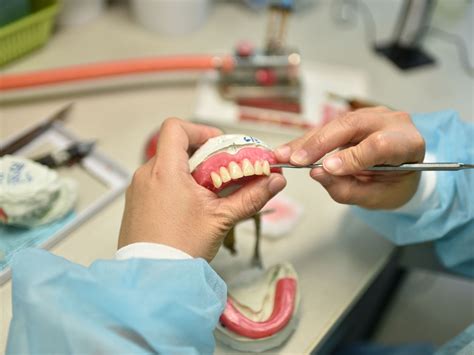Denture Wait Times: Staying Positive During the Process
Getting dentures is a significant decision, impacting your smile, confidence, and overall well-being. While the prospect of a renewed smile is exciting, the wait time for your custom dentures can be challenging. This article explores strategies for staying positive throughout the process and offers insights into what to expect. We'll address common questions and concerns surrounding denture wait times, helping you navigate this period with grace and optimism.
How Long Does it Take to Get Dentures?
The timeframe for receiving dentures varies significantly depending on several factors. These include:
- The complexity of your case: Individuals with complex oral health issues, requiring extractions or significant bone grafting, will naturally have longer wait times.
- Your dentist's schedule: Demand and the dentist's capacity influence appointment availability and the overall process speed.
- Laboratory processing times: The dental lab creating your dentures also plays a role. Some labs might have faster turnaround times than others.
Generally, you can expect the entire process, from initial consultations to receiving your finished dentures, to take anywhere from several weeks to several months.
What Happens During the Denture-Making Process?
Understanding the steps involved can help manage expectations and reduce anxiety during the wait. The typical process involves:
- Initial Consultations and Impressions: Your dentist will assess your oral health, take impressions of your mouth, and discuss your denture needs and expectations.
- Extractions (if necessary): If you have remaining teeth that need removal, this stage will add time to the overall process. Healing time is crucial here.
- Fitting of Temporary Dentures (often): These provide comfort and help you adjust to the feeling of dentures before the final set is ready.
- Multiple Fittings and Adjustments: Your dentist will likely schedule several fittings to ensure a perfect fit and address any necessary adjustments.
- Final Denture Creation and Delivery: Once everything is perfect, the lab will create your permanent dentures, and you'll receive them.
What Can I Do to Stay Positive While Waiting for Dentures?
The wait can be frustrating, but proactive steps can help you remain positive:
- Maintain good oral hygiene: This is vital, especially if you're waiting for extractions to heal. Brush and floss diligently.
- Stay in close communication with your dentist: Don't hesitate to contact your dentist's office with questions or concerns.
- Plan ahead for post-denture care: Research denture cleaning products and techniques. Understanding this aspect helps ease anxiety about the transition.
- Focus on the positive outcome: Remind yourself of the benefits of having dentures – improved chewing, confidence, and a better smile.
- Practice self-care: Engage in activities you enjoy to keep your mind occupied and your spirits high during the wait.
How Can I Make My Temporary Dentures More Comfortable?
Temporary dentures are often less comfortable than permanent ones. To improve comfort:
- Use denture adhesive: This can help create a better seal and reduce irritation.
- Eat soft foods: Avoid hard or crunchy foods that could damage the temporary dentures or irritate your gums.
- Rinse your mouth regularly: This helps remove food particles and keep your mouth clean and fresh.
- Contact your dentist if you experience significant discomfort: Don't suffer in silence. Report any issues promptly.
Are There Different Types of Dentures That Might Affect Wait Times?
Yes, the type of denture you choose can impact the wait time. Immediate dentures (placed immediately after extractions) generally have a shorter initial wait but may require more adjustments later. Conventional dentures (made after healing from extractions) require a longer initial wait. The complexity of each type will influence the overall process.
What Should I Expect After Receiving My Dentures?
Once you receive your dentures, remember that there will be an adjustment period. Expect potential soreness, minor discomfort, and some difficulty speaking or eating initially. Your dentist will provide guidance on aftercare and answer any questions you have. Be patient with yourself, and remember that this discomfort is temporary. With time and practice, you'll adapt, and your new smile will improve your quality of life.
By understanding the process, managing expectations, and utilizing the tips above, you can navigate the denture wait time with positivity and anticipation for your improved smile. Remember to always communicate with your dental professional for any concerns or questions that may arise.

